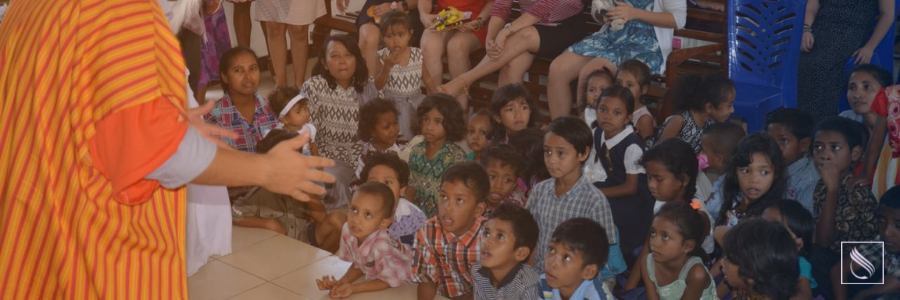Mission trips offer participants an opportunity to combine evangelistic endeavors, community service projects, and cultural enrichment in a life-changing adventure. These trips have the power to impact not only the participants, but also the community where the project takes place. If you’ve been on a mission trip, you know the transformational power of exploring a new culture and customs as well as the satisfaction that comes with serving others. It’s a combination that is hard to beat.
For all the positives that mission trips offer your conference, school, or church, there is a lot of risk involved. Combine international travel, remote locations, limited access to healthcare, and individuals with little to no experience with construction, and you have a recipe for a potentially dangerous situation.Planning a mission trip requires so much more than booking travel and packing a bag. Trip leaders need to consider four main areas when planning a missing trip: location, travel, food and lodging, and safety.
Location
Before taking any steps, a location to serve must first be selected. The overall safety of the country should be considered, including the potential for political unrest. Talk with your conference about using International SOS to get more information about your destination.Remote locations often provide some of the most memorable experiences for mission trip participants. However, these locations come with additional logistical challenges. Access to food, supplies, and even medical care should be considered when selecting a remote location.
Coordinating with the local Seventh-day Adventist conference can provide a lot of benefits. They can often provide a local contact to help coordinate logistics and may be able to provide local translators as well.
Travel
Booking group travel is very different from planning a family vacation. Whenever possible, book your tickets through a major airline based in your country. These airlines are usually part of a larger alliance or network of airlines, offering more options if your flights are cancelled or delayed.Airlines may offer groups more flexibility in terms of when payment is due and when the final list of passenger names must be submitted. Work with a travel agent or the airline’s group booking agent to make sure you understand the differences in group travel.
Knowing what travel documents are required is also important. For groups based in the United States, the Department of State website offers excellent information on travel visas and other requirements. Canadian groups should visit the Government of Canada page on travel and tourism.
Most governments offer a free service to register when traveling abroad. This allows the government to contact you and help coordinate your return home in case of emergency. U.S. travelers should register with the Smart Traveler Enrollment Program (STEP) and Canadian travelers should make use of Registration of Canadian Abroad.
In recent months, international travel has only become more complicated as each country has different requirements for COVID-19 vaccination and testing. Consideration of these requirements applies both to the country you’re traveling to as well as your home country.
Once you arrive at your destination, you’ll need local transportation from the airport and for getting around town. Your local contacts can help you find transportation that is safe and reliable. If you are hiring drivers, make sure they are insured and your group is included on the policy. If you are renting vehicles, make sure you have insurance to cover the rentals and are authorized to drive in the country.
Food and Lodging
Once travel arrangements are set, planning for food and lodging is next. Again, having someone you can coordinate with locally can help greatly with this. A pre-trip may also be necessary to scout out your destination and learn more about what is available.Securing food for a large group may be difficult in many places. If you are used to eating certain foods in your home country, keep in mind local grocery stores and markets may not have the quantity you expect. Eating a local cuisine is often the best option and provides another cultural aspect for the trip.
You should plan to use bottled water while on your trip and take extra precautions with raw foods. Sometimes these products can carry bacteria or germs. You can use a bleach/water mixture to sanitize produce.[1] Activated charcoal can help if participants get an intestinal bug and may even help prevent stomach issues if taken proactively.
Book secure lodging that can accommodate your group. If you’re camping or staying at the local church or school, make sure showers are available. If you’re staying at a hotel, find out where the group can prepare and eat their meals.
Safety
Keeping a large group safe in a foreign country is essential. Ideally, you should have a doctor and/or a nurse traveling with your group, and you should carry with you plenty of medical supplies in addition to a standard first aid kit. Knowing what medical services are available at your destination is also essential.When a construction project is part of your trip, job site safety is very important. Bring at least one person familiar with construction to oversee the building project. Inspect all equipment to ensure safety, and require protective equipment for all participants. Have your construction experts train participants on each job they are asked to do or for each piece of equipment they use.
If you are planning an excursion day to relax or tour the region, use safe and reliable transportation. Work with your local contacts to know which tour providers are safe, and make sure you only swim at beaches that have trained lifeguards on duty.
Finally, talk with your participants about personal safety when traveling overseas. Tourists are easy to spot, especially when in a group, and they can become a target for pickpockets or robbery. Always secure personal belongings, encourage others to be aware of surroundings, and never let participants walk around by themselves.
Planning safe mission trips is essential to making these opportunities a positive, life-changing experience for everyone involved. ARM offers several resources on planning mission trips, including a checklist so you can make sure you don't forget anything. We also offer short-term travel insurance to protect you and your group on your next mission trip.
References:
[1] LSU Ag Center. (n.d.). Wash Water Chlorine Disinfection: Best Practices to Ensure On-Farm Food Safety. Retrieved October 2021, from LSU Ag Center: https://www.lsuagcenter.com/articles/page1561146897345
Image Credits: By ARM South America during Mission Trip to East Timor, 2018.


